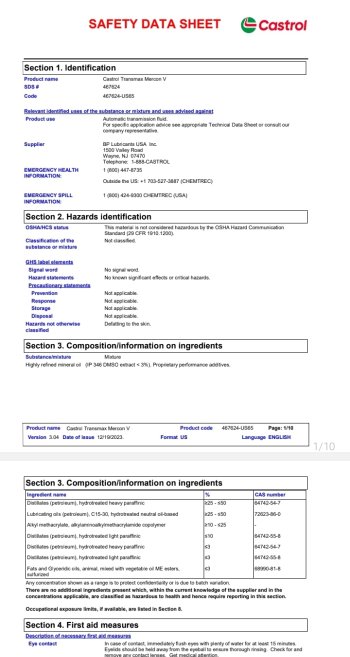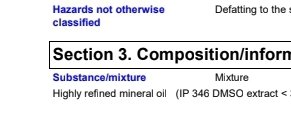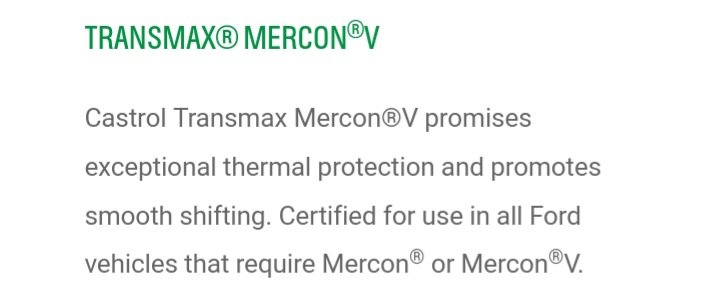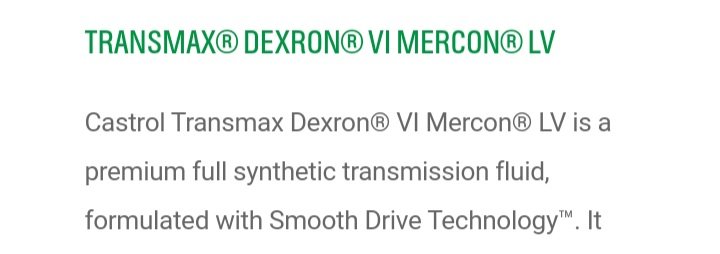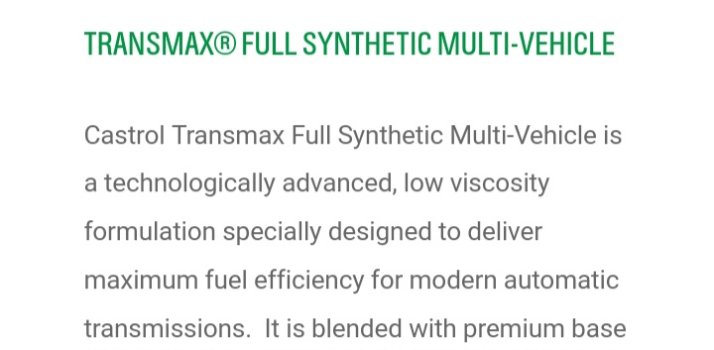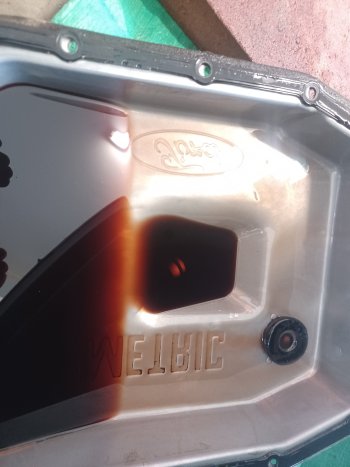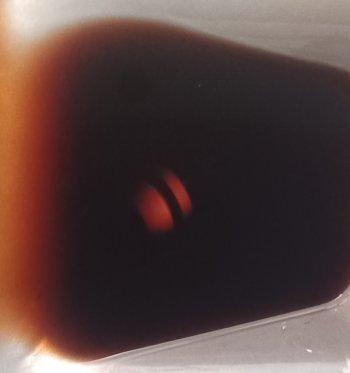1997ThunderbirdLXV6
Seasoned PostWhore
There's no better way to light up an automotive online forum than starting a conversation about engine oil.
Is transmission fluid just as controversial? Let's find out.
See the subject line: I'm interested in actual experiences with Valvoline MaxLife Multi-Vehicle ATF (hereafter MaxLife for short) in 4R70W transmissions.
Let's cover the basics: of course conventional wisdom is to use the fluid specified by Ford, i.e., Mercon V which replaced Mercon. Mercon V is widely available from various brands, including Motorcraft and Supertech, and is not dramatically more expensive than multi-vehicle fluid.
Therefore, this isn't really a conversation to solve a specific problem, but I'm interested in potential benefits from a more "modern" fluid. I'd also like to reconcile an apparent contradiction:
Ford to my best knowledge considers Mercon V and Mercon LV incompatible, yet Valvoline lists its MaxLife fluid as suitable for both applications:
 sharena21.springcm.com
sharena21.springcm.com
Given the age of our cars, a fluid with high mileage additives (seal conditioners, etc.) seems attractive. MaxLife is also a synthetic fluid while Mercon V is conventional.
A cursory search around the internet reveals mostly very positive reviews of MaxLife, too.
So who has actually used it in a 4R70W and can share some observations?
Meanwhile, I siphoned a cup of fluid out of my pan yesterday. It's quite dark though not burnt, and there aren't any visible particles. I flushed it maybe 12,000 miles ago, and I expected it to look better.
Is transmission fluid just as controversial? Let's find out.
See the subject line: I'm interested in actual experiences with Valvoline MaxLife Multi-Vehicle ATF (hereafter MaxLife for short) in 4R70W transmissions.
Let's cover the basics: of course conventional wisdom is to use the fluid specified by Ford, i.e., Mercon V which replaced Mercon. Mercon V is widely available from various brands, including Motorcraft and Supertech, and is not dramatically more expensive than multi-vehicle fluid.
Therefore, this isn't really a conversation to solve a specific problem, but I'm interested in potential benefits from a more "modern" fluid. I'd also like to reconcile an apparent contradiction:
Ford to my best knowledge considers Mercon V and Mercon LV incompatible, yet Valvoline lists its MaxLife fluid as suitable for both applications:
US_Val_MLMultiVehicle_ATF_EN.pdf - DocuSign CLM
Given the age of our cars, a fluid with high mileage additives (seal conditioners, etc.) seems attractive. MaxLife is also a synthetic fluid while Mercon V is conventional.
A cursory search around the internet reveals mostly very positive reviews of MaxLife, too.
So who has actually used it in a 4R70W and can share some observations?
Meanwhile, I siphoned a cup of fluid out of my pan yesterday. It's quite dark though not burnt, and there aren't any visible particles. I flushed it maybe 12,000 miles ago, and I expected it to look better.

